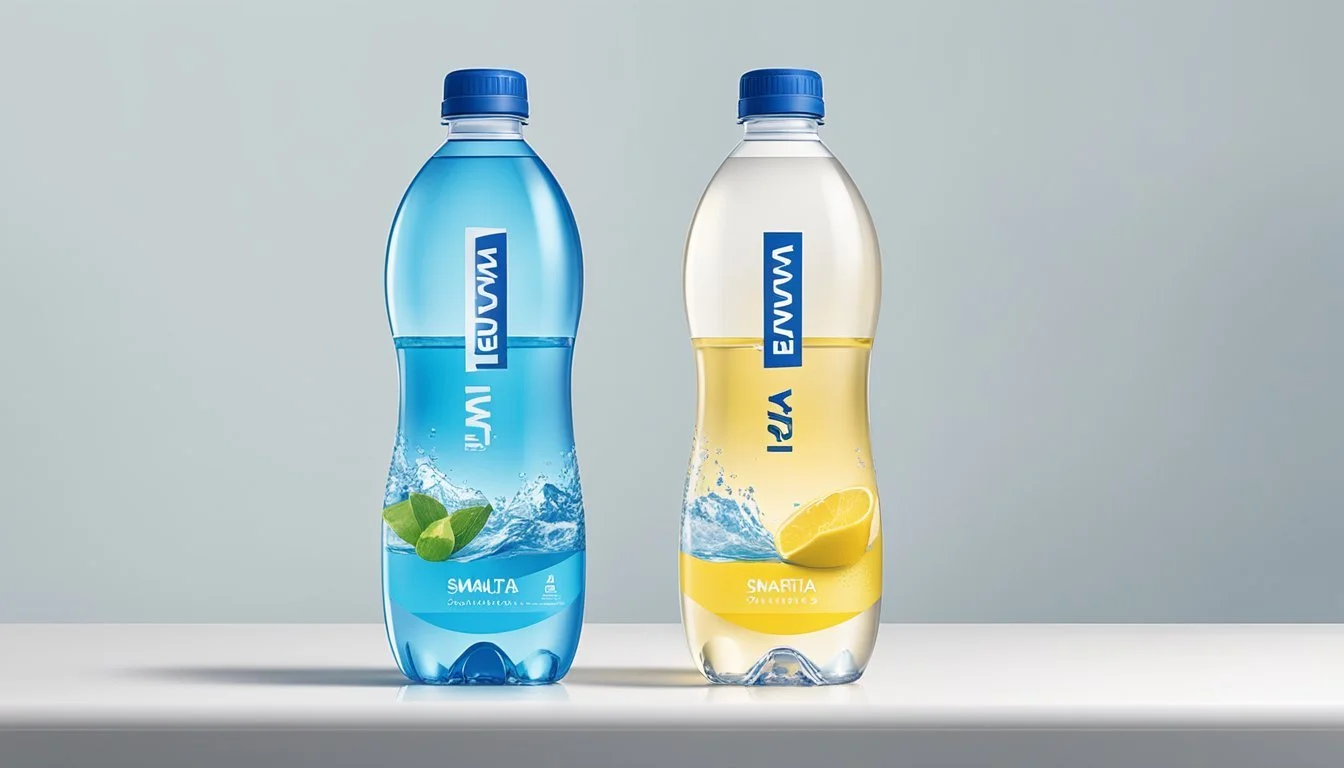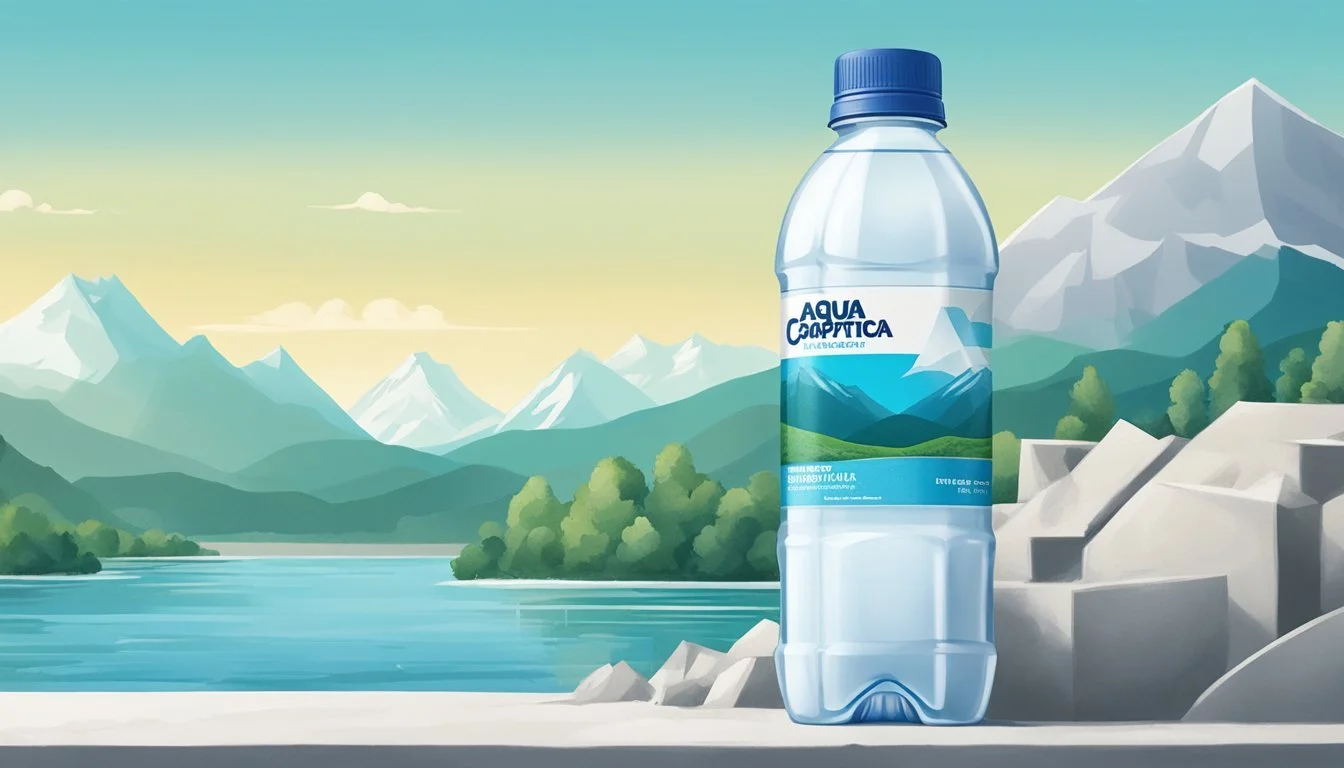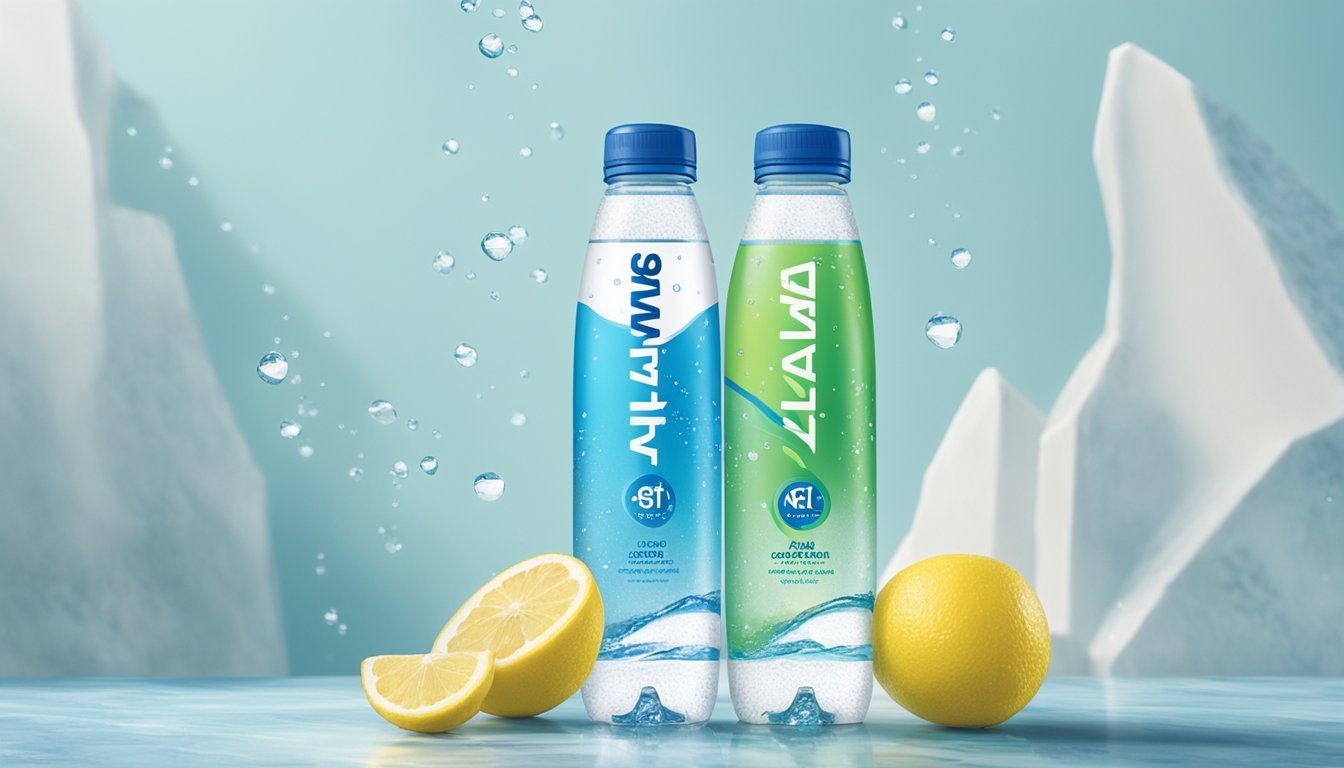Smartwater vs. Aqua Carpatica
Top Bottled Water Compared
Smartwater and Aqua Carpatica are two popular choices among bottled water brands, each with its unique selling points. Smartwater, produced by Glaceau, is known for its vapor-distilled purity and the addition of electrolytes for taste. On the other hand, Aqua Carpatica, sourced from the Carpathian Mountains in Romania, boasts natural alkalinity and is nitrate-free, making it appealing to health-conscious consumers.
For those prioritizing taste and high quality, Aqua Carpatica’s claim of zero nitrates and natural mineral content might tip the scales. Its naturally alkaline water can help balance body pH, potentially offering more significant health benefits. In contrast, Smartwater's clean, crisp flavor and widespread availability make it a convenient option for everyday hydration.
Ultimately, the choice between Smartwater and Aqua Carpatica hinges on individual preferences and health priorities. While both brands offer pure and refreshing water, Aqua Carpatica's natural properties and health benefits make it a standout for those seeking more than just hydration from their bottled water.
Understanding Bottled Water
Bottled water comes in a variety of types, each offering different benefits and hydration properties. It's important to understand these distinctions in order to make informed choices for your health and lifestyle.
Types of Bottled Water
Mineral Water: Naturally sourced from mineral springs, this water contains essential minerals like calcium and magnesium. It may offer health benefits through its mineral content.
Spring Water: Collected directly from a natural spring, this water is often praised for its purity. It's typically free from contamination and undergoes minimal processing.
Alkaline Water: Known for its higher pH level, alkaline water aims to neutralize acid in the body. It's marketed as a means to improve overall health and hydration.
Purified Water: This type is treated to remove impurities and contaminants. Methods of purification can include distillation, deionization, and reverse osmosis.
Distilled Water: Created through boiling and condensation, distilled water is free from minerals and other impurities. While pure, it lacks the beneficial minerals found in other types.
Different bottled water options cater to varied health requirements and taste preferences. Choosing the right type depends on what you prioritize in your hydration choice.
Benefits of Bottled Water
Convenience: Bottled water offers portability, making it easy to stay hydrated on the go, during workouts, or in emergencies.
Quality Control: Brands often advertise rigorous testing for contaminants, giving consumers confidence in the safety and quality of the product.
Health Benefits: Mineral water can replenish essential nutrients, and alkaline water may help balance pH levels in the body. These benefits can contribute to overall health.
Taste: Many people prefer the taste of specific bottled waters, which can vary based on mineral content and processing methods.
Options: Bottled water provides a range of choices, such as flavored varieties, to suit different preferences.
While tap water is a viable option, bottled water offers a level of assurance and variety that appeals to many consumers.
Bottled Water and Hydration
Daily Consumption: Drinking enough water daily is vital for bodily functions. Bottled water provides a practical solution to meet hydration needs.
During Exercise: Bottled water is convenient for athletes and exercise enthusiasts who need to stay hydrated during physical activity.
For Health Risks: Those with weakened immune systems or concerns about contaminants in tap water may prefer bottled water for its perceived safety.
Taste Preference: Some people find bottled water more palatable, which may encourage better hydration practices.
Balanced Intake: Various bottled waters, like mineral and alkaline versions, support the intake of essential nutrients, contributing to overall hydration effectiveness.
Understanding how bottled water can aid in maintaining optimal hydration levels helps in making the best choice for individual health and lifestyle needs.
Smartwater and Coca-Cola
Smartwater, a product of the Coca-Cola Company, is best known for its vapor-distillation process and added electrolytes. It is marketed as a high-quality, premium bottled water option.
Smartwater Brand Overview
Smartwater is produced by Glaceau, a subsidiary of the Coca-Cola Company. Founded by J. Darius Bikoff in 1996, the brand has gained popularity for its clean, crisp taste and premium positioning in the market.
Coca-Cola's involvement has boosted Smartwater's distribution and marketing capabilities globally. With a focus on offering a healthier alternative to soft drinks, Smartwater has carved a niche for itself among health-conscious consumers.
Smartwater Filtration Process
Smartwater undergoes a meticulous vapor-distillation process, inspired by the natural hydrological cycle of clouds. This process involves boiling the water to vapor, then condensing it back to liquid form, which results in distilled water that is exceptionally pure.
Following distillation, Smartwater is enhanced with added minerals such as calcium, magnesium, and potassium, which contribute to its distinct taste and balanced pH. The result is a product positioned as both pure and flavorful.
Aqua Carpatica's Natural Purity
Aqua Carpatica is renowned for its exceptional purity and natural mineral composition. These qualities are derived from its pristine origins and unique formulation.
Origin and Source
Aqua Carpatica originates in the Carpathian Mountains of Romania. This region is noted for its untouched, naturally protected environment, which helps maintain the purity of the water. The springs from which Aqua Carpatica is sourced are located deep within the mountains, in areas free from agricultural or industrial contamination.
The isolation of the source ensures that the water remains unspoiled. Meticulous extraction processes further preserve the water's natural quality. These practices include minimal interference with the natural flow and careful monitoring for any potential impurities.
Natural Mineral Composition
Aqua Carpatica is distinguished by its natural mineral composition. The water contains a balanced mix of essential minerals, including calcium and magnesium, that contribute to its refreshing taste. What sets it apart is its low nitrate content, which is often highlighted by water sommeliers.
The low mineral content gives it a neutral flavor, making it versatile for various uses, from casual drinking to gourmet cooking. Aqua Carpatica also boasts being nitrate-free, a rare attribute among bottled waters. This quality not only enhances its taste but also ensures it remains a healthy choice.
Health Implications
When choosing between Smartwater and Aqua Carpatica, one must consider the specific health benefits and potential drawbacks of each. This section will focus on the essential minerals in these waters and their overall composition and how that affects health.
Essential Minerals in Water
Smartwater and Aqua Carpatica contain different levels of essential minerals. Smartwater is vapor-distilled, with added electrolytes like calcium, magnesium, and potassium to improve taste and aid in hydration.
Aqua Carpatica naturally contains minerals due to its spring sources. It is rich in calcium and magnesium. These minerals are essential for bone health, muscle function, and nerve transmission.
Table: Mineral Content Comparison
Mineral Smartwater Aqua Carpatica Calcium (mg/L) ~10 ~110 Magnesium (mg/L) ~10 ~90 Potassium (mg/L) Trace Moderate
Water Composition and Health
Smartwater's vapor-distilled process removes almost all impurities, making it an ultra-pure option. This is beneficial for those with weak immune systems or specific health concerns.
Aqua Carpatica's natural composition includes nitrates and sodium levels that are well below the safety limits, making it a suitable choice for health-conscious consumers. Its natural carbonation in the sparkling variant can aid in digestion.
Key Health Benefits:
Smartwater: Ideal for athletes and active individuals due to added electrolytes.
Aqua Carpatica: Suitable for daily consumption and pregnancy, given its natural mineral content.
Both waters help in preventing dehydration, but their different compositions may cater to specific health needs and preferences.
Environmental Impact and Packaging
Both Smartwater and Aqua Carpatica consider environmental impact in their packaging choices, though they approach it differently. Smartwater uses plastic bottles with an emphasis on recycling, while Aqua Carpatica employs both plastic and glass options with a focus on sustainability.
Bottle Materials and Sustainability
Smartwater utilizes plastic bottles made from PET, which are lightweight and convenient for consumers. PET is BPA-free and highly recyclable, which aligns with efforts to reduce environmental impact.
Aqua Carpatica offers packaging in both plastic and glass bottles. The glass bottles are more eco-friendly and can be reused or recycled more efficiently than plastic. This approach aims to balance convenience with sustainability, promoting reduction in single-use plastics.
Environmental Concerns
The production and disposal of plastic bottles present significant environmental concerns. While PET plastic is recyclable, improper disposal can lead to environmental pollution. Smartwater promotes recycling but still contributes to the plastic waste problem.
Aqua Carpatica's use of glass bottles seeks to mitigate this issue. Glass is less harmful to the environment and reduces pollution. However, the energy required to produce and transport glass bottles is higher, impacting the carbon footprint. Both brands encourage recycling to minimize waste and resource consumption.
Taste and Quality
Smartwater and Aqua Carpatica are known for their distinct tastes and high-quality standards. This section explores the factors affecting taste, consumer preferences, and the quality assurance measures of both brands.
Factors Affecting Taste
Several factors affect the taste of bottled water, such as mineral content, pH levels, and the presence of contaminants.
Smartwater is vapor-distilled and enhanced with electrolytes, which contribute to its clean and crisp taste. It's designed to emulate the purity of distilled water but with a hint of added minerals. Aqua Carpatica, on the other hand, prides itself on being naturally nitrate-free with a low sodium concentration, offering a pure and refreshing taste. Both brands aim for a neutral pH level, making them palatable and free from metallic or chemical aftertastes.
Consumer Preferences
Consumer preferences often center around taste and perceived health benefits. Many choose Smartwater for its smooth, crisp taste and the presence of added electrolytes, which some believe offer hydration benefits.
Aqua Carpatica appeals to health-conscious consumers who prioritize natural purity and chemical-free water. Its lack of nitrates and low sodium levels attract those looking for a clean and refreshing option. Both brands have performed well in taste tests, with Smartwater being favored for its subtle taste, while Aqua Carpatica is often preferred for its naturally pure flavor.
Quality Assurance
Quality assurance measures ensure that both brands maintain their high standards. Smartwater undergoes a rigorous vapor distillation process, followed by the addition of electrolytes to achieve its signature taste.
Aqua Carpatica sources its water from pristine Carpathian springs, ensuring it is naturally pure and free from pollutants. The water sommelier community often praises Aqua Carpatica for its commitment to preserving the natural quality of its water. Both brands employ consistent testing and adhere to strict safety guidelines to offer high-quality bottled water to consumers.
Comparative Analysis
The following analysis delves into the specifics of pH balance and alkalinity, mineral contents and benefits, and price and accessibility for both Smartwater and Aqua Carpatica.
pH Balance and Alkalinity
Smartwater typically has a neutral pH of around 7, aligning with plain drinking water. It is known for undergoing a purification process that includes vapor distillation and the addition of electrolytes for taste.
Aqua Carpatica offers both still and sparkling options. The still water is noted for its clean taste and naturally low nitrate levels, indicating minimal contamination. Its sparkling variety delivers a crisp, refreshing flavor. The pH level of Aqua Carpatica still water varies around neutral, while sparkling water may lean towards slight alkalinity.
Mineral Contents and Benefits
Smartwater incorporates added electrolytes such as potassium, calcium, and magnesium for enhanced flavor and hydration. These additions contribute to a smoother mouthfeel.
Aqua Carpatica distinguishes itself with a naturally occurring mineral content. The still water is rich in calcium and magnesium while being nitrate-free, which benefits cardiovascular and overall health. Its sparkling version also retains these mineral properties while adding natural carbonation.
Price and Accessibility
Smartwater is widely available, with competitive pricing at various retailers like Amazon and grocery stores. A 1-liter bottle typically costs around £1.50.
Aqua Carpatica, priced at around 65p for a 500ml bottle, is also accessible through retailers like Ocado. This makes it a cost-effective, high-quality option for health-conscious consumers.
Both brands are readily available, but Aqua Carpatica offers a more budget-friendly choice without compromising on quality.
Market Presence and Consumer Choices
Smartwater and Aqua Carpatica both offer unique attributes that cater to different consumer preferences. The following sections break down how each brand establishes its market presence and how they influence consumer lifestyle choices.
Bottled Water Brands
Smartwater is known for its vapor-distilled process and the addition of electrolytes. It is widely available in many retail locations, making it convenient for a broad consumer base. Smartwater's reputation for a clean, crisp taste and its association with health-conscious living attract a loyal customer group.
Aqua Carpatica stands out with its nitrate-free composition and competitive pricing. While it may not be as widely available as Smartwater, Aqua Carpatica appeals to consumers who prioritize purity and health benefits. Its presence in health food stores and select grocery outlets underscores its niche market appeal. Both brands face competition from other premium bottled waters like Evian, Fiji, and Voss, each offering their own unique selling points, such as specific mineral content or sustainable packaging.
Influence on Lifestyle
Smartwater's marketing emphasizes hydration that complements an active lifestyle. Its partnerships with fitness influencers and placement in gyms and yoga studios reinforce this message. Consumers often associate Smartwater with being on-the-go and maintaining a healthy balance.
Aqua Carpatica's focus on purity and natural ingredients appeals to those who are more concerned with their water's source and composition. This brand resonates with consumers who prefer organic and natural products. Its nitrate-free claim is particularly appealing to those wary of water contaminants.
Both brands illustrate significant lifestyle choices, reflecting broader trends in consumer behavior towards health and wellness. While Smartwater aligns with athletic and daily routines, Aqua Carpatica taps into the desire for natural and clean hydration.
Final Thoughts
Choosing between Smartwater and Aqua Carpatica comes down to individual lifestyle and preferences.
For those prioritizing convenience, Smartwater is widely available in various sizes, offering flexibility for different needs. Its added electrolytes cater to active individuals looking for quick hydration after workouts.
Aqua Carpatica, with its natural nitrate-free composition and low sodium content, appeals to health-conscious consumers. This makes it a suitable choice for those monitoring their sodium intake.
Consumer choice often depends on taste and brand loyalty. Some consumers might prefer the clean, crisp taste of Aqua Carpatica, while others may favor the subtle flavor of Smartwater.
When considering environmental impact, Smartwater's efforts in sustainable packaging could sway eco-conscious buyers. Aqua Carpatica’s commitment to purity and quality also plays a significant role in consumer decisions.
For a quick comparison:
Feature Smartwater Aqua Carpatica Electrolytes Yes No Nitrate-free No Yes Sodium content Moderate Low Availability High Moderate Taste Subtle Crisp Sustainable Packaging Yes Limited
Ultimately, the better choice hinges on personal health goals, taste preferences, and brand values. Whether seeking hydration on-the-go or aiming to reduce sodium intake, both Smartwater and Aqua Carpatica cater to distinct needs.
More About Smartwater
Core Hydration vs Smartwater: Which Bottled Water is Better?
Icelandic Glacial vs Smartwater: Which Bottled Water is Better?
Mountain Valley Spring Water vs Smartwater: Which Bottled Water is Better?
Nestle Pure Life vs Smartwater: Which Bottled Water is Better?
San Pellegrino vs Smartwater: Which Bottled Water is Better?
Smartwater vs Cascade Mountain: Which Bottled Water is Better?
Smartwater vs Crystal Geyser: Which Bottled Water is Better?
Smartwater vs Hawaii Volcanic: Which Bottled Water is Better?
Smartwater vs Hawaiian Springs: Which Bottled Water is Better?
Smartwater vs Kirkland Signature: Which Bottled Water is Better?
Smartwater vs Richard's Rainwater: Which Bottled Water is Better?
Smartwater vs Solan de Cabras: Which Bottled Water is Better?
Smartwater vs Talking Rain AQA: Which Bottled Water is Better?
Smartwater vs Whole Foods 365: Which Bottled Water is Better?
Smartwater vs Whole Foods Italian Still Mineral water: Which Bottled Water is Better?
More About Aqua Carpatica
Acqua Pana vs Aqua Carpatica: Which Bottled Water is Better?
Aqua Carpatica vs Alkaline88: Which Bottled Water is Better?
Aqua Carpatica vs Cascade Mountain: Which Bottled Water is Better?
Aqua Carpatica vs Castle Rock: Which Bottled Water is Better?
Aqua Carpatica vs CBD Living: Which Bottled Water is Better?
Aqua Carpatica vs Crystal Geyser: Which Bottled Water is Better?
Aqua Carpatica vs Crystal Lake: Which Bottled Water is Better?
Aqua Carpatica vs Essence pH10: Which Bottled Water is Better?
Aqua Carpatica vs Hawaii Volcanic: Which Bottled Water is Better?
Aqua Carpatica vs Hawaiian Springs: Which Bottled Water is Better?
Aqua Carpatica vs Kirkland Signature: Which Bottled Water is Better?
Aqua Carpatica vs Liquid Death: Which Bottled Water is Better?
Aqua Carpatica vs Open Water: Which Bottled Water is Better?
Aqua Carpatica vs Proud Source: Which Bottled Water is Better?
Aqua Carpatica vs Purely Sedona: Which Bottled Water is Better?
Aqua Carpatica vs Richard's Rainwater: Which Bottled Water is Better?
Aqua Carpatica vs Simple Truth: Which Bottled Water is Better?
Aqua Carpatica vs Solan de Cabras: Which Bottled Water is Better?
Aqua Carpatica vs Talking Rain AQA: Which Bottled Water is Better?
Aqua Carpatica vs Weird Water: Which Bottled Water is Better?
Aqua Carpatica vs Whole Foods 365: Which Bottled Water is Better?
Aqua Carpatica vs Whole Foods Italian Still Mineral water: Which Bottled Water is Better?
Boxed Water vs Aqua Carpatica: Which Bottled Water is Better?
Core Hydration vs Aqua Carpatica: Which Bottled Water is Better?
Ice Mountain vs Aqua Carpatica: Which Bottled Water is Better?
Icelandic Glacial vs Aqua Carpatica: Which Bottled Water is Better?
Just Water vs Aqua Carpatica: Which Bottled Water is Better?
Mountain Valley Spring Water vs Aqua Carpatica: Which Bottled Water is Better?
Nestle Pure Life vs Aqua Carpatica: Which Bottled Water is Better?
Poland Spring vs Aqua Carpatica: Which Bottled Water is Better?
San Pellegrino vs Aqua Carpatica: Which Bottled Water is Better?
Topo Chico vs Aqua Carpatica: Which Bottled Water is Better?
Zephyrhills vs Aqua Carpatica: Which Bottled Water is Better?






